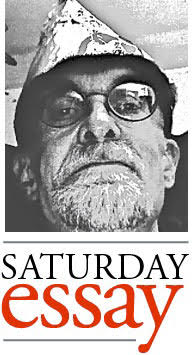My People
 If I walk west there are mansions along my way, with lawns most green and lovely. As I cross a certain avenue things start to get shaggy, and if on a corner lot there’s a for-sale sign on a cairn of truck tires my diaphragm expands with the deep breath of belonging, and I think to myself — my people!
If I walk west there are mansions along my way, with lawns most green and lovely. As I cross a certain avenue things start to get shaggy, and if on a corner lot there’s a for-sale sign on a cairn of truck tires my diaphragm expands with the deep breath of belonging, and I think to myself — my people!
America, so it’s said, is the land of meritocracy, social mobility, and a playing field both level and just. Here any child can grow up to inherit a hundred million dollars, pump it through Manhattan real-estate, fluff it in the casinos of Atlantic City and Wall Street, and end up leveraged to the balls with the Russian mob.
But the most accurate predictor of where you’ll wind up socio-economically — in America more so than any other wealthy country — is where your parents wound up. Social mobility exists, and was expanded by the GI Bill after WW ll, and cheap (even free) college through the ’70s, but the ladders have been withdrawn over starter-castle walls, and rising stars belie the rule.









 [Editor’s note: For this week’s essay we’ve pulled out another relic from the archive of Slim Goodbuzz, who served as Duluth’s connoisseur of drinking establishments from 1999 to 2009. In this article we travel back ten years to the time of the Economic Stimulus Act of 2008 — before Duluth’s Mexico Lindo restaurant existed — when the ol’ “sultan of sot” paid a visit to Baha Billy’s at the Fitger’s Brewery Complex. The article was originally published in the June 30, 2008 issue of the Transistor.]
[Editor’s note: For this week’s essay we’ve pulled out another relic from the archive of Slim Goodbuzz, who served as Duluth’s connoisseur of drinking establishments from 1999 to 2009. In this article we travel back ten years to the time of the Economic Stimulus Act of 2008 — before Duluth’s Mexico Lindo restaurant existed — when the ol’ “sultan of sot” paid a visit to Baha Billy’s at the Fitger’s Brewery Complex. The article was originally published in the June 30, 2008 issue of the Transistor.]





